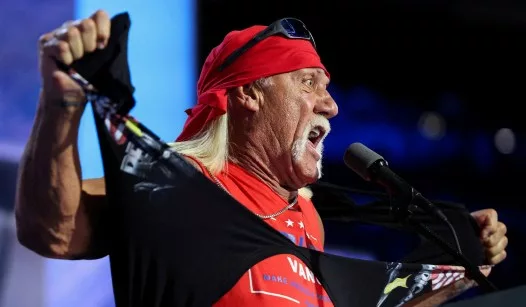Hulk Hogan, the iconic wrestling superstar, is often remembered for his larger-than-life persona and legendary matches in the ring. However, his most significant triumph came not through body slams and piledrivers but in a courtroom battle that sent shockwaves through the media landscape. This legal saga, which pitted Hogan against Gawker Media, highlighted critical issues surrounding privacy rights, celebrity culture, and the power of the press.
In 2016, Hogan was awarded a staggering $140 million in damages after a Florida jury found that Gawker had invaded his privacy by publishing a sex tape without his consent. The case became a landmark moment in the ongoing debate about the boundaries of journalism and the extent to which public figures can expect privacy in their personal lives. Hogan’s victory was seen as a significant win for individuals seeking to protect their personal lives from invasive media scrutiny.
The origins of this legal battle can be traced back to 2006 when Hogan was filmed without his knowledge during an intimate encounter with Heather Clem, the then-wife of his friend Bubba the Love Sponge. The tape was later leaked to Gawker, which published excerpts and commentary, igniting a firestorm of controversy. Hogan’s initial response was to seek an injunction to prevent the tape’s publication, but Gawker’s refusal to comply led to a protracted legal fight.
Hogan’s case against Gawker raised important questions about the First Amendment and the right to free speech versus the right to privacy. Gawker argued that the publication of the tape was in the public interest, given Hogan’s celebrity status. However, Hogan’s legal team countered that the tape was a private matter and that Gawker’s actions constituted a gross invasion of his privacy.
The jury ultimately sided with Hogan, awarding him $115 million in compensatory damages and an additional $25 million in punitive damages. The verdict sent a clear message about the limits of press freedom and the importance of respecting individual privacy. It also sparked a broader conversation about the responsibilities of media outlets when reporting on the private lives of public figures.
In the aftermath of the trial, Gawker Media faced significant financial challenges. The company filed for bankruptcy and was subsequently sold to Univision in 2018. The case served as a cautionary tale for media organizations, highlighting the potential consequences of prioritizing sensationalism over ethical journalism.
Hogan’s legal victory resonated beyond the world of wrestling and media. It underscored the importance of privacy rights in the digital age, where personal information can be easily disseminated and exploited. As technology continues to evolve, the lines between public and private life are increasingly blurred, making Hogan’s case a pivotal moment in the ongoing discourse surrounding privacy and celebrity culture.
While Hogan may be best known for his wrestling career, his fight against Gawker Media has left an indelible mark on the landscape of media law and privacy rights. His story serves as a reminder that even in the age of relentless media scrutiny, individuals have the right to protect their personal lives from unwarranted invasion.
As we reflect on Hogan’s journey, it is essential to recognize the broader implications of his legal battle. The case not only highlights the challenges faced by public figures in safeguarding their privacy but also emphasizes the need for responsible journalism that respects the boundaries of personal life. In an era where the lines between entertainment and news continue to blur, Hogan’s victory stands as a testament to the enduring struggle for privacy rights in the face of relentless media pressure.
